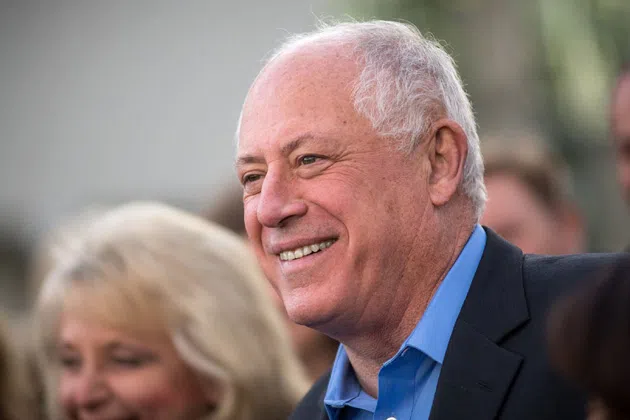
By Greg Bishop/Illinois Radio Network
SPRINGFIELD – State Senator Jason Barickman said there still aren’t proper controls in place to keep tax dollars from being wasted on what some have called politically connected anti-violence programs that had little or nothing to show for the millions of dollars they received from the state.
The Pat Quinn-era Neighborhood Recovery Initiative program doled out tens of millions of dollars to nonprofit anti-violence groups throughout the state over several years before the 2014 election. An investigation found little grant oversight and lots of waste.
A Legislative Audit Commission report in April 2016 found then-Gov. Quinn’s office was tasked with selecting the communities, providers and funding levels of the programs, outside of the normal process. There were also issues with when grant contracts would be signed, how they would be monitored, and whether there were background checks or site visits.
The commission’s report said millions of dollars weren’t recovered and hundreds of thousands of costs were questioned.
“At the end of the community violence prevention program in July and August of 2014, [Illinois Criminal Justice Information Authority] received $7.3 million from the Department of Human Services to make payments for the violence prevention grants,” auditor Mike Maziarz said Tuesday. “However, we found that ICJIA already had sufficient appropriations for these programs.”
The mixup left fewer dollars for the DHS programs, Maziarz said.
While the program ended in 2014, Barickman, co-chair of the Legislative Audit Commission, said not much else has been done to correct the problem “other than there’s new people in the agencies who wasted all this money before. I think that’s wholly inadequate.”
Barickman, R-Bloomington, said his legislation, Senate Bill 749, would require more legislative oversight of such spending.
“If this legislation would have been law under Gov. [Pat] Quinn,” Barickman said, “I don’t think he would have been able to make the decisions that he made back then on this NRI program.”
Barickman said his bill is buried in committee.
ICJIA Executive Director John Maki said he was not in charge of the agency during the Quinn administration. He was on the ICJIA oversight board, but said board members were often confused about how to execute their oversight role.
Maki said one problem with the NRI program was agencies were asked to spend a lot of money in a short amount of time.
“We have to take a more gradual and strategic approach and be sure that the dollars we spend are attached to programs that are researched and have evidence behind them, that have accountability built into it, and are outcome driven,” Maki said.
There are still misspent dollars to identify from agencies that received grants.
ICJIA’s Deputy General Counsel Robin Murphy said they’re still reviewing $9 million that the Chicago Area Project received.
“That investigation and recovery process is monumental,” Murphy said. “The number our recovery auditor is at now is approximately $780,000.”
That’s nearly one-tenth of what CAP received from the state.
Murphy expects CAP to make legal and accounting arguments at an informal hearing next month seeking to identify more misspent funds.
Barickman said it’s disheartening to hear how little has been recovered so far.
“That’s pennies to the tens of millions that have been spent,” Barickman said. “So I think there’s more that we can do there.”
“I don’t know that the tools exist for the agency to [claw back funds],” Barickman said. “I think we can look to the Illinois Attorney General as a mechanism to claw back, or to the prosecutors.”
ICJIA said it was not aware of any ongoing investigations into those who misspent dollars.




